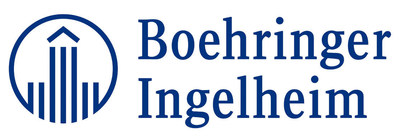

RIDGEFIELD, Conn., Sept. 26, 2018 /PRNewswire/ -- Results from a new global survey revealed that more than one-third (36%) of the 310 physicians surveyed do not think they have sufficient information required to make informed decisions on how to sequence treatments for patients with epidermal growth factor receptor mutation-positive (EGFR M+) non-small cell lung cancer (NSCLC). The survey results will be presented today as a late-breaking abstract (P3.01-108) at the 2018 World Conference on Lung Cancer (WCLC) in Toronto, Canada.

The two most important treatment goals identified by those surveyed were increasing overall survival (OS) (77%), followed by quality of life (QoL) (69%), irrespective of the line of treatment.
Findings show that more than half (55%) of physicians strongly preferred a treatment sequence that offers patients the maximum time on targeted treatments. Furthermore, physicians reported that there is a strong need for information on potential treatment resistance mutations before changing their current treatment practice.
More information to make informed treatment decisions was needed depending on whether physicians preferred:
Forty-three percent of those who preferred a treatment offering the longest PFS said they needed more information to make an informed treatment decision on the sequencing of targeted treatments compared to 23% of those who favor a first-line targeted treatment that offers the potential to use a targeted therapy in second-line.
Dr. Vera Hirsh, medical oncologist in the Department of Medical Oncology at Royal Victoria Hospital in Montreal, and Professor at McGill University, commented, "The survey results highlight that there is uncertainty among physicians about the best way to sequence targeted treatments to achieve optimal overall survival, which is the main goal when selecting treatments for patients with EGFR mutation-positive NSCLC. Based on these findings, we encourage additional evidence of the development of resistance to EGFR TKI that will provide information and guidance around the impact of treatment sequencing on overall survival to support oncologists when making treatment decisions."
Dr. Victoria Zazulina, Global Head of Solid Tumor Oncology, Medicine at Boehringer Ingelheim, commented, "The availability of more treatment options means physicians now have the opportunity to sequence targeted treatments for EGFR mutation-positive NSCLC patients and consider the bigger picture from diagnosis. We undertook this research to learn what considerations guide physicians' decisions to sequence targeted therapies, and this study unveiled the gap in clinical data that could clearly inform such decisions. Consequently, we embarked on a real-world evidence study evaluating the EGFR Tyrosine Kinase inhibitor (TKI) treatment sequence in patients with EGFR-mutant NSCLC, and are looking forward to sharing the outcomes with the physician community later this year."
About the survey
The Boehringer Ingelheim-sponsored survey evaluated 310 physicians (Oncologists, Pulmonologists, Respiratory Surgeons and Internal Respiratory Specialists) across four countries (China: 70, Germany: 70, Japan: 70 and USA: 100). The survey aimed to assess current attitudes towards decision making for Tyrosine Kinase Inhibitor (TKI) sequencing to determine what matters most when selecting a treatment and what challenges physicians face when initiating targeted treatment in EGFR M+ NSCLC patients.
About Boehringer Ingelheim in Oncology
Cancer takes away loved ones, time and untapped potential. At Boehringer Ingelheim we are providing new hope for patients by taking cancer on. We are collaborating with the oncology community to deliver scientific breakthroughs to transform the lives of patients. Our primary focus is in lung and gastrointestinal cancers, with the goal of delivering breakthrough, first-in-class treatments that can help win the fight against cancer. Our commitment to innovation has resulted in pioneering treatments for lung cancer and we are advancing a unique pipeline of cancer cell directed agents, immune oncology therapies and intelligent combination approaches to help combat many cancers.
About Boehringer Ingelheim Pharmaceuticals, Inc.
Boehringer Ingelheim Pharmaceuticals, Inc., based in Ridgefield, Conn., is the largest U.S. subsidiary of Boehringer Ingelheim Corporation.
Boehringer Ingelheim is one of the world's top 20 pharmaceutical companies. Headquartered in Ingelheim, Germany, the company operates globally with approximately 50,000 employees. Since its founding in 1885, the company has remained family-owned and today creates value through innovation for three business areas including human pharmaceuticals, animal health and biopharmaceutical contract manufacturing.
Boehringer Ingelheim is committed to improving lives and providing valuable services and support to patients and their families. Our employees create and engage in programs that strengthen our communities. Please visit www.boehringer-ingelheim.us/csr to learn more about how we make more health through our Corporate Social Responsibility initiatives.
In 2017, Boehringer Ingelheim achieved net sales of about $20.4 billion (18.1 billion euros). R&D expenditure corresponds to approximately $3.4 billion (three billion euros), or 17.0 percent of its net sales.
For more information please visit https://www.boehringer-ingelheim.us, or follow us on Twitter @BoehringerUS.
SOURCE Boehringer Ingelheim Pharmaceuticals
